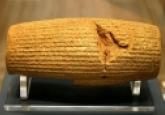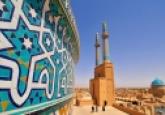
Dr Cornelius Adebahr is a political analyst and consultant living in Berlin, Germany. His work focuses on European foreign policy issues, transatlantic relations, and Iran. Since the end of 2000, he has been the owner of Wirtschaft am Wasserturm – Political Consultancy, Project Development, and Training. In addition, he is a non-resident fellow at Carnegie Europe in Brussels and an associate fellow of the German Council on Foreign Relations (DGAP), as well as a member of the Team Europe of the European Commission.
He was a lecturer at Georgetown University (2015-16), at Tehran University (2012-13) and at the Willy Brandt School of Public Policy at Erfurt University (2005-2011). From 2009-2011, he was a fellow of the New Leadership Foundation (stiftung neue verantwortung) in Berlin, and in 2002/2003 of the Robert Bosch Foundation’s Post-Graduate Program in International Affairs.
Cornelius studied Political Science (International Relations), Philosophy, Public Law, and International Economics in Tübingen, Paris, and at the Free University Berlin, where he graduated in 2001 before receiving his PhD (Dr. rer. pol.) in 2008 with an analysis of the work of the EU Special Representatives. His analysis of the EU’s foreign policy towards Iran, with a particular focus on the nuclear negotiations (2003-2015), appeared with Routledge in 2017.
More about Cornelius can be found on his website.


